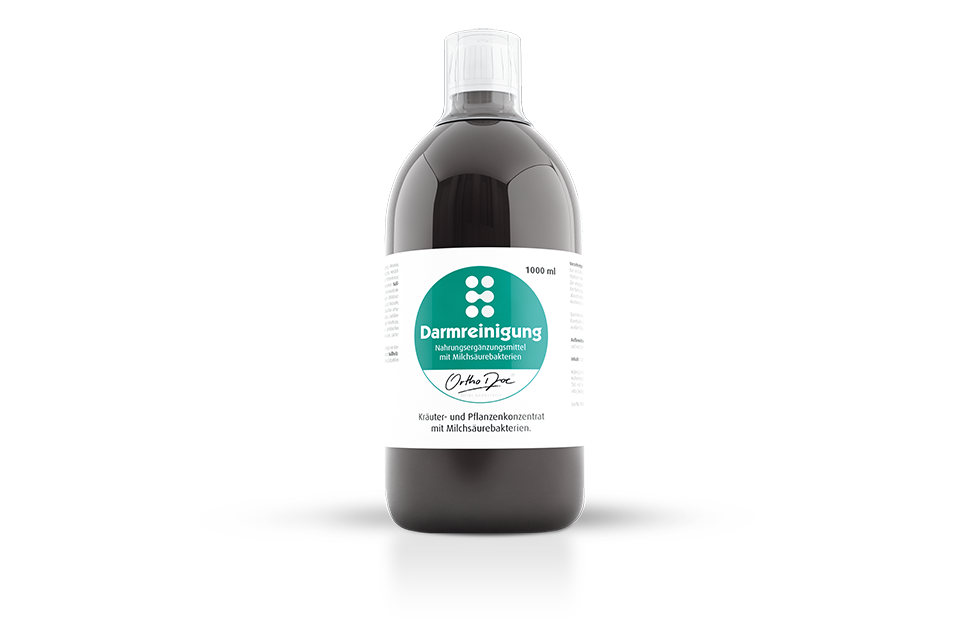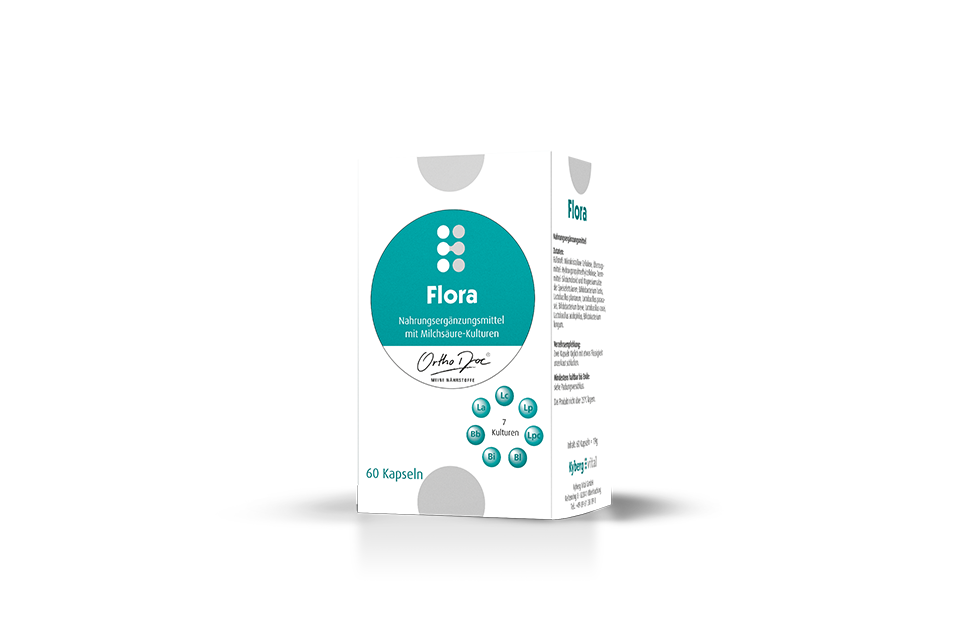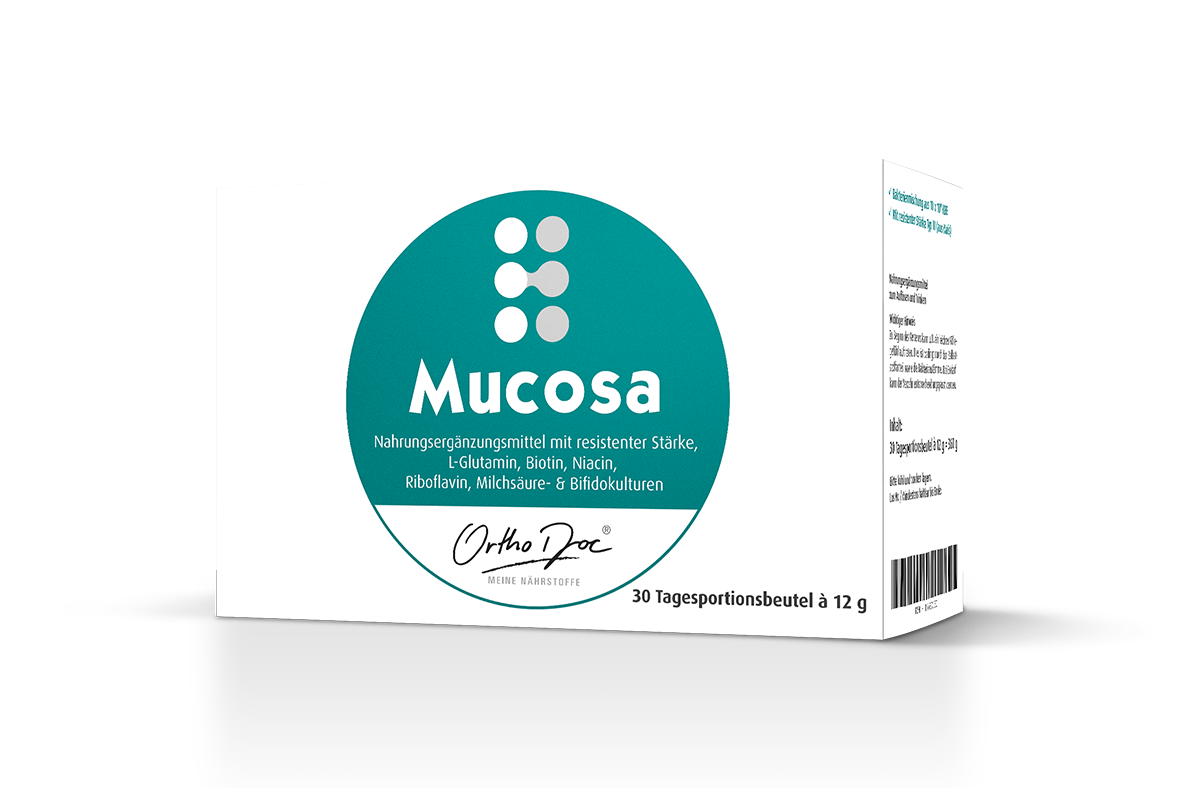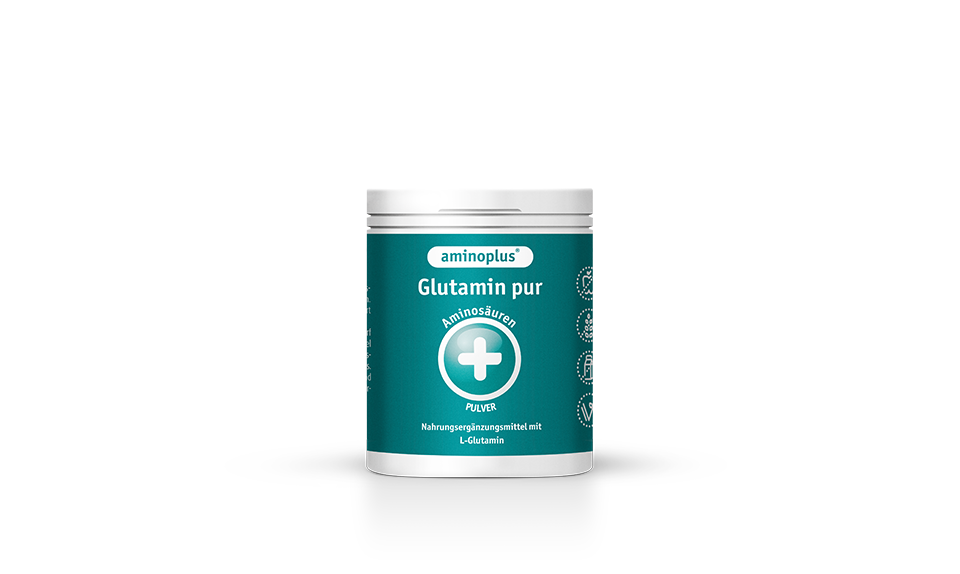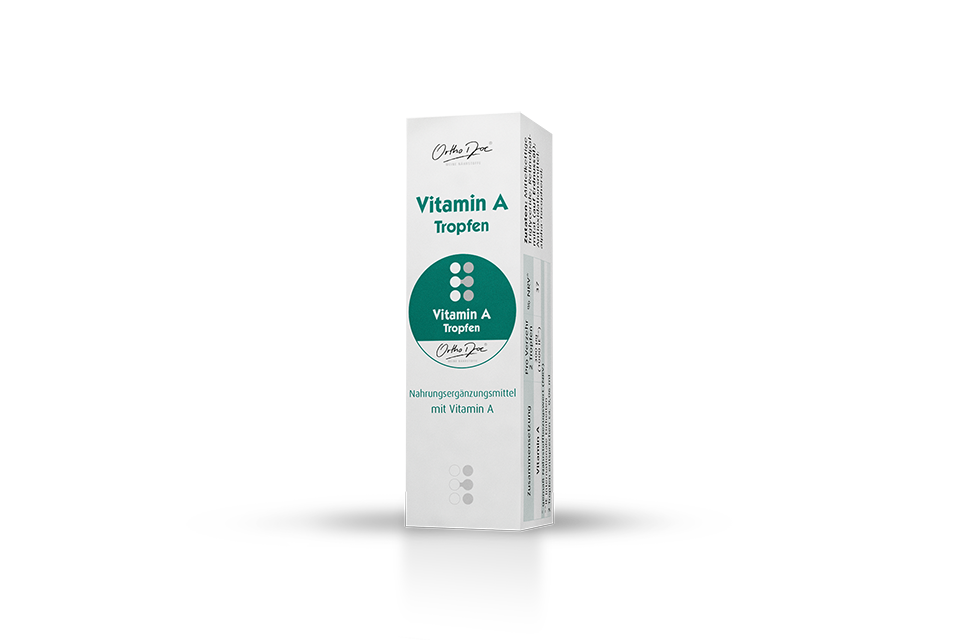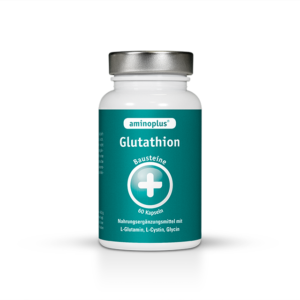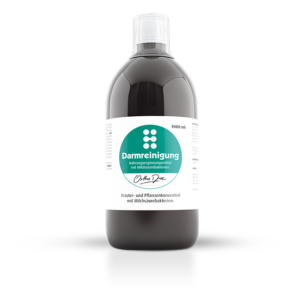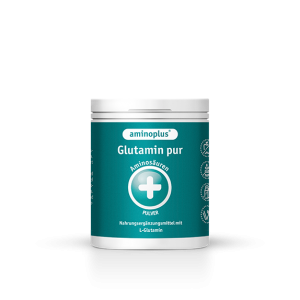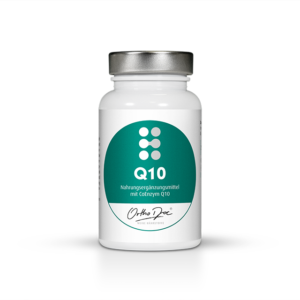Gut Health
Health begins in the gut!
When it comes to the “intestine”, it is primarily associated with digestion. After being mixed and acidified in the stomach, the food we eat reaches the small intestine, the site of actual digestion and nutrient absorption. The large intestine with its various sections (ascending, transverse and descending colon as well as the sigmoid and rectum) is the final reservoir for digestive residues as well as the thickening and fermentation center. This is where the final excretion of non-digestible residues takes place as feces via the anus. Depending on what food has been ingested, the digestion process can take from twelve to over thirty hours.

The intestine has a comprehensive competence for our Health. Although digestion is the function that we are inevitably aware of every day, it is only one of many functions that the intestine performs or in which it is involved.
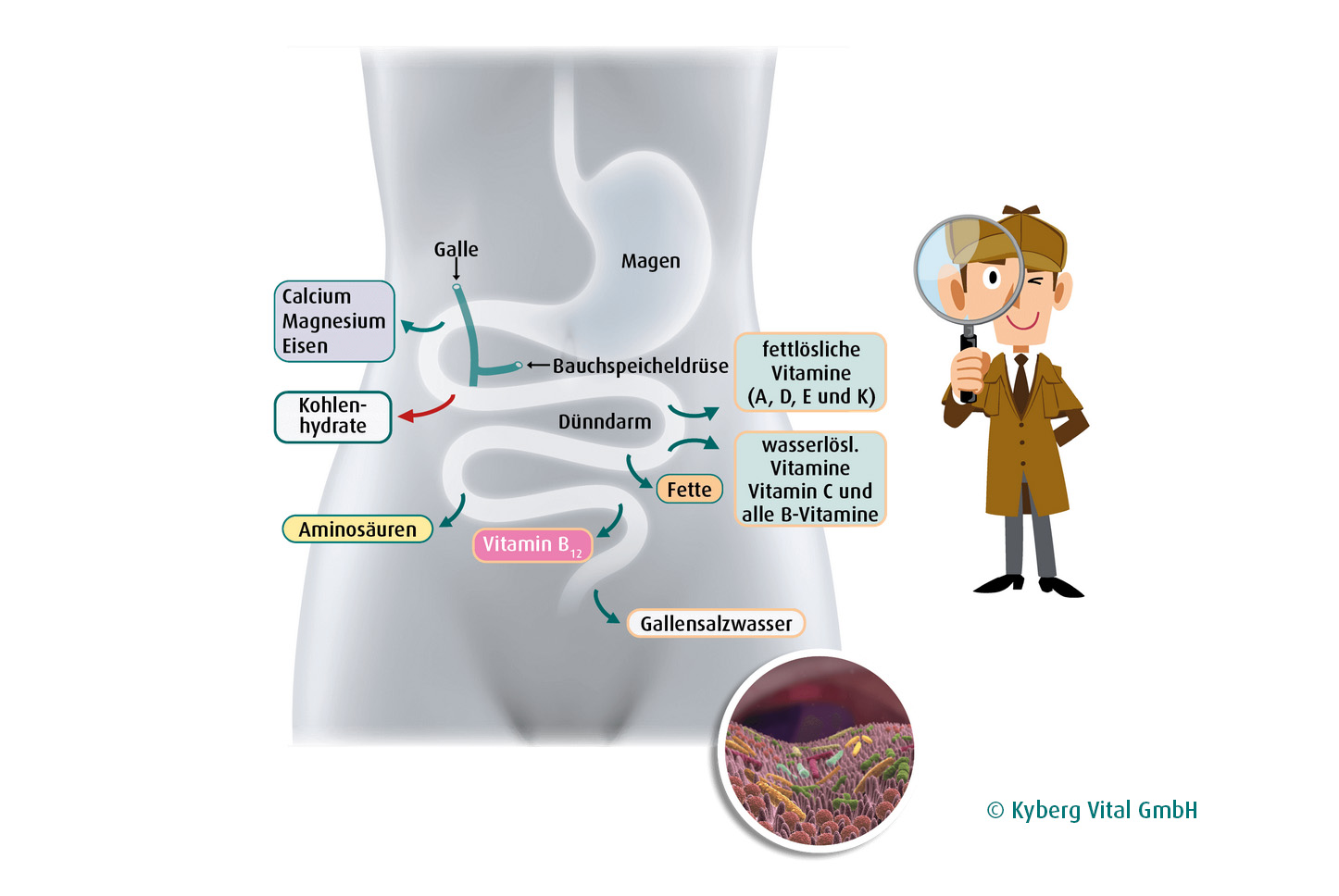
Our health organ – the intestine
Intestine - the nutrient detective
During the digestive process, the food components are not only broken down, but the valuable nutrients they contain are recognized, filtered out and absorbed by the small intestine. About Us they enter the blood through the intestinal mucosa and reach all organs via the bloodstream. The nutrients serve to maintain, function and protect all organs. A healthy intestine scans the food and absorbs what is needed, while a healthy intestinal balance excretes the unusable and non-digestible components.
An inadequate supply of micronutrients means that physiological processes cannot run optimally, regeneration processes are restricted and the body’s own structures are inadequately supported.
The absorption of nutrients takes place in different sections along the small intestine.

Our tip for Gut Health:
Gut-brain axis
Intestine - Nervous system
Did you know that the intestine has its own highly complex nervous system in its mucous membrane, which is in constant contact with the nerve cells in the brain, resulting in a lively exchange? This is known as the gut-brain axis, whereby the gut sends significantly more signals to the brain than the other way around. This is another reason why you can rely on your gut feeling.
Messenger substances convey how the body has to adapt to a particular situation. When we eat, other functions are shut down so that we can concentrate fully on digestion. If the body is in an acute stress situation, attention and concentration take priority and digestion has to take a back seat. The enteral nervous system also controls movements, digestive enzymes and nutrient absorption. The nervous system is so well equipped that the gut continues to respond to stimuli outside the body for several days and is therefore also referred to as the “gut brain” or “second brain”. Crazy, isn’t it?
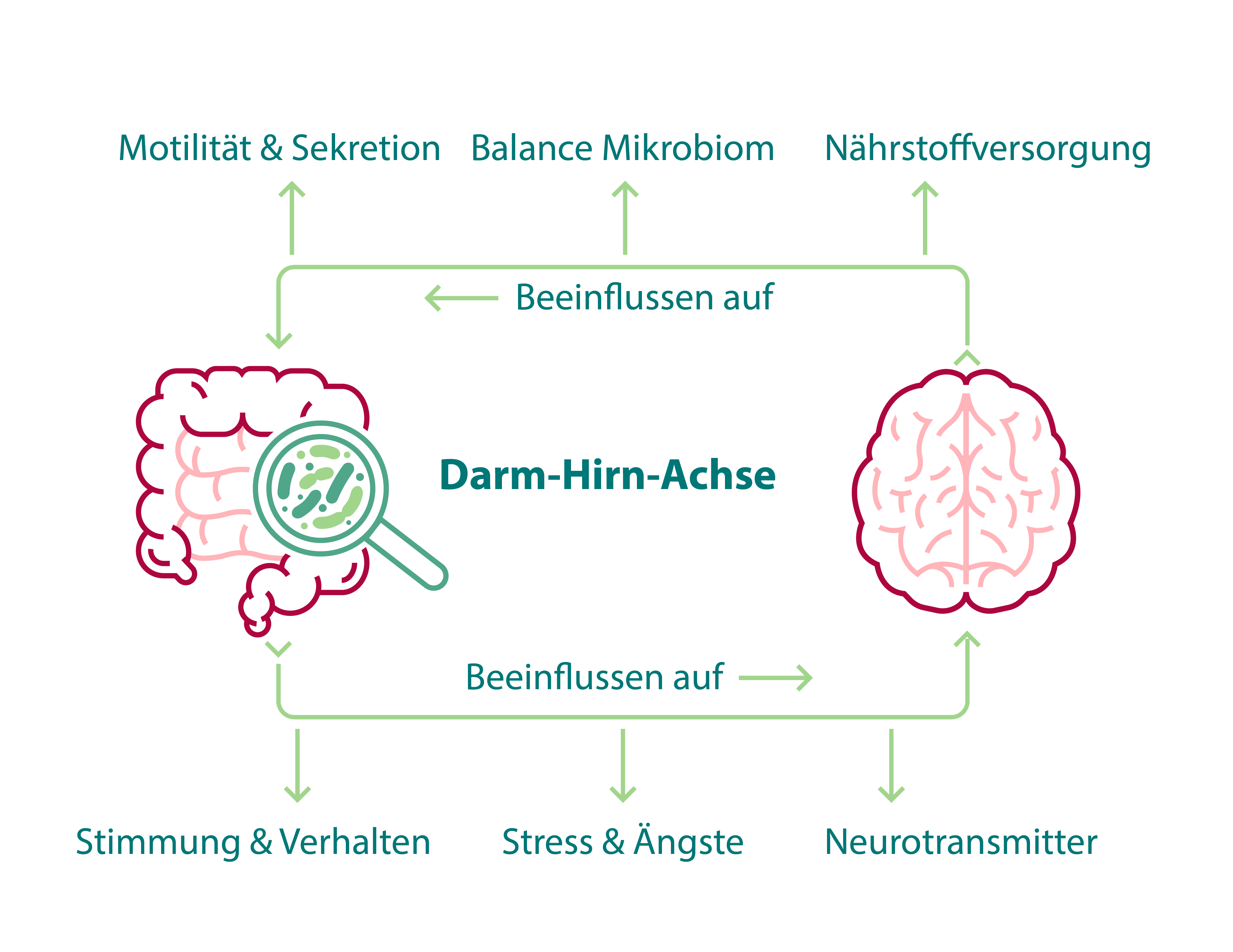
Our tip for Gut Health:
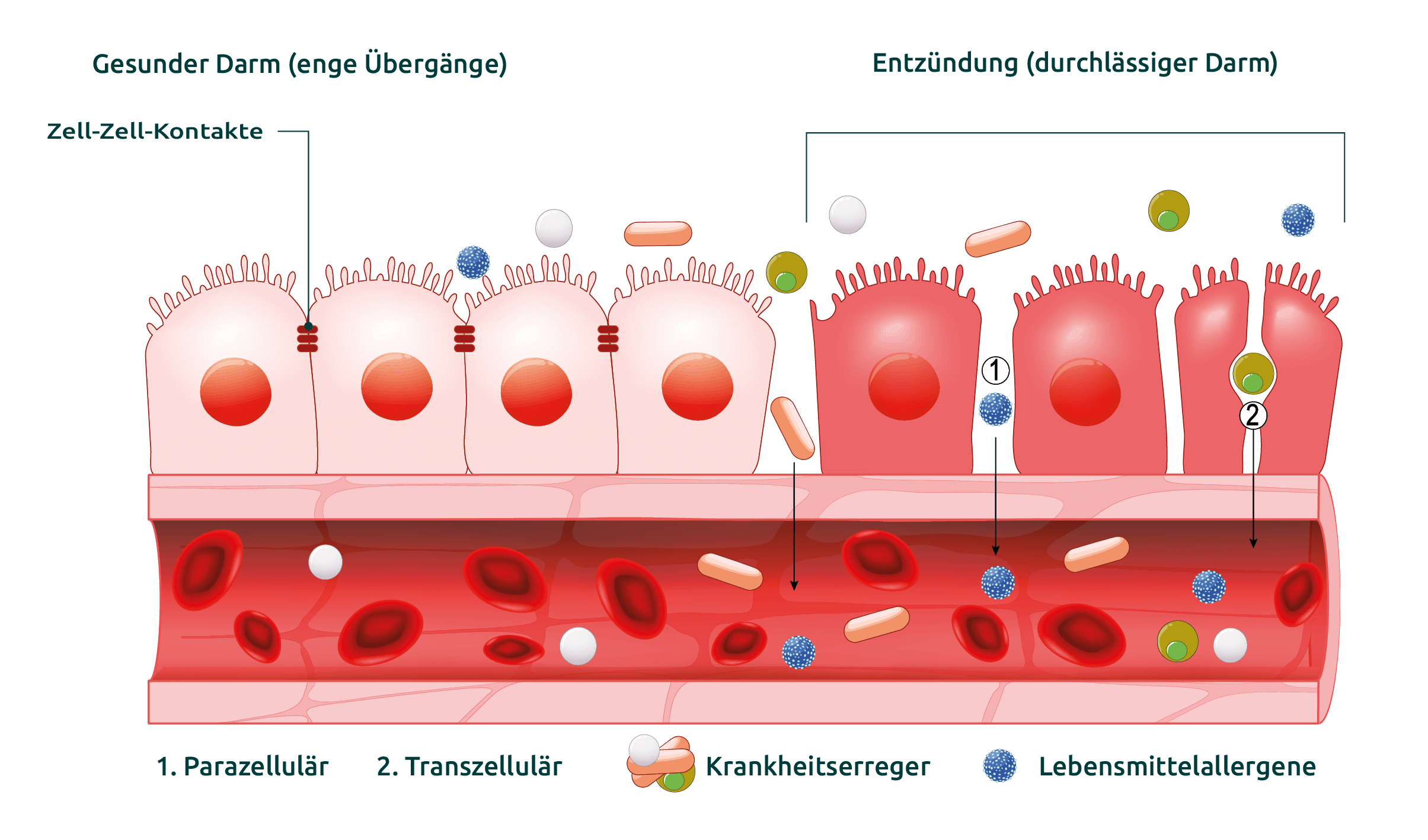
The intestine – production of hormones and messenger substances
Intestine - synthesis of messenger substances and hormones
Not only are over 100 million nerve cells hard at work here. The cells in the intestine are also able to produce messenger substances and hormones themselves. In the so-called enterochromaffin cells of the intestine, the majority of the mood-enhancing neurotransmitter serotonin (> 90%), also known as 5-hydroxytryptamine (5-HT), is produced. Serotonin, which is also known as the happiness hormone, not only produces the sleep hormone melatonin, which regulates the sleep-wake rhythm, but serotonin also acts as a messenger substance for the serotonergic nervous system in the gut. The gut influences both the psyche and sleep, two important components for well-being. So-called enterohormones are also produced in the intestine and fulfill their function there. These include, among other mechanisms of action, being responsible for controlling the production of stomach acid and stimulating the pancreas to release neutralizing sodium hydrogen carbonate.

Our tip for Gut Health:
OrthoDoc® Mucosa
Food supplement with resistant starch, L-glutamine, biotin, niacin, riboflavin, lactic acid & bifido cultures. With 1 g L-glutamine.
Biotin contributes to the normal metabolism of macronutrients and to the maintenance of normal mucous membranes.
Niacin and riboflavin contribute to the maintenance of normal mucous membranes.
Niacin contributes to the maintenance of normal mental function.
Support for the Immune System
Intestine - the largest immune organ
In addition to these functions, the intestine is also our largest and therefore most important immune organ. The complex structure of the intestinal mucosa, the intestinal microbiome with over 1000 different bacterial strains and the intestinal cells provide a first barrier against pathogenic germs. But 80% of all immune cells are also located in the gut and protect us from pathogens that affect us every day. Considering that around 34 million antibiotics were prescribed in 2019, which can cause massive damage to the intestinal mucosa and thus also impair the immune system, this should clearly give us pause for thought.
Source: AOK
Intestines – out of balance
Anyone whose intestinal function is impaired can judge the influence the intestines have on our Health and well-being. Starting with minor digestive problems such as flatulence, diarrhea, constipation, gastrointestinal infections through to food intolerances or chronic inflammatory bowel diseases. A disturbed bowel can be quite a problem, whether acute or permanent. In the long term, a sick gut can lead to a lack of nutrients, a reduced immune system with recurring infections and a reduction in mental well-being with a depressed mood and sleep disorders. When treating the respective symptoms, an intestinal disorder should therefore always be considered as a possible contributory cause.
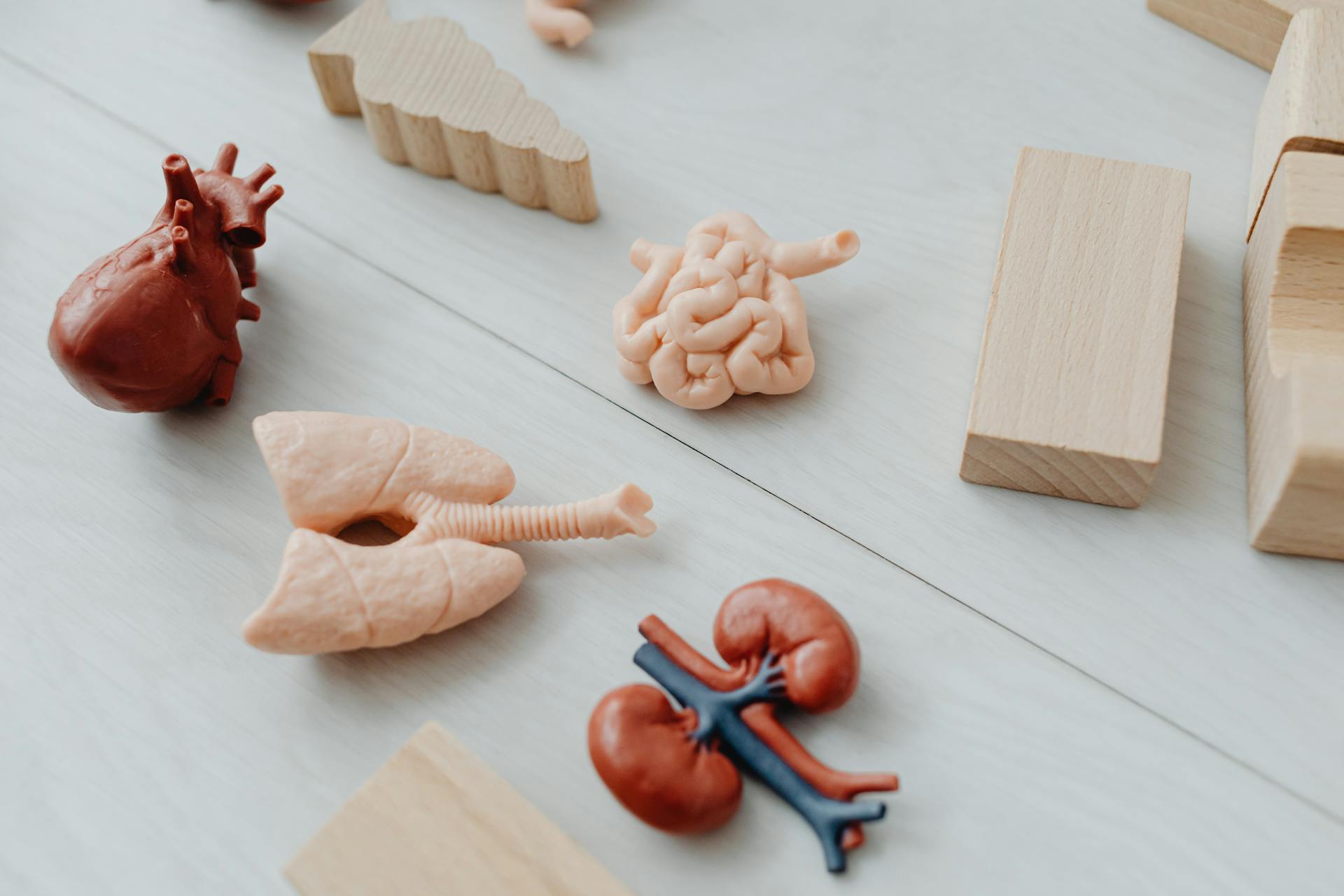
Our tip for Gut Health:

Nutrient supply for the intestine
All the best for the gut
A healthy gut needs a healthy and balanced diet, preferably three times a day every 4-5 hours in an appropriate portion size. As every digestive process takes time, snacks should ideally be avoided in between meals so as not to overload the digestive system. In the case of acute intestinal complaints, inflammation-promoting foods such as sweets, alcohol, dairy products, meat and saturated fatty acids should be avoided. Too much fiber can also overload the intestines in the event of an acute disorder. Easily digestible foods such as rice, potatoes and steamed vegetables are then preferable. Many patients with bowel problems benefit from longer periods of fasting, also known as intermittent fasting. This gives the intestines the opportunity to regenerate better between meals and to break down digestive residues. Anti-inflammatory measures and building up the intestinal microbiome with probiotic products are particularly important if the intestinal barrier is disturbed and inflammation is present. While foods such as vegetables, fruit, nuts and proteins are particularly important for supplying the body with nutrients, dietary fiber is especially valuable for the intestines. These are not attacked by digestive enzymes, but are fermented in the large intestine by intestinal bacteria.
Only in a healthy intestinal mucosa can vital intestinal bacteria colonize and healthy digestion take place.

Our tip for Gut Health:
OrthoDoc® Vitamin A Drops
Food supplement with vitamin A.
Contributes to normal iron metabolism.
Contributes to the maintenance of normal skin and mucous membranes.
Contributes to the maintenance of normal vision.
Contributes to the normal function of the Immune System.
Has a function in cell specialization.

